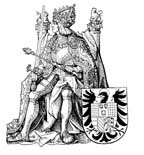
The Church’s Civilizational Task Under Leo XIV
CONFRONTING A NEW ENEMY: LATE-STAGE GLOBALISM
When Robert Cardinal Prevost emerged from the conclave as Pope Leo XIV, his choice of name carried a providential resonance. In invoking the legacy of Leo XIII (r. 1878-1903), who met the upheaval of the industrial revolution with a commitment to the moral order, Leo XIV signaled his intention to confront the no-less-urgent crisis of our time: the spiritual and moral disintegration wrought by late-stage globalism. Though the forms have changed, the battle remains the same. Across centuries, the Church has been called to defend the eternal order against the disorder that invariably follows when man attempts to build civilization without reference to his divine origin and ultimate end.
As the Church moves further into the 21st century, she once again finds herself at a crossroads: a moment that lays bare the enduring conflict between the City of God and the City of Man. The economic systems, cultural norms, and technological structures that shape the modern global order are not neutral instruments but embodiments of deeper philosophical commitments — commitments that either affirm or reject the transcendent order inscribed in creation. For Leo XIV, the task is both clear and urgent: to reassert the unchanging truth about human nature and man’s eternal destiny in an age increasingly estranged from both.
Globalism’s Assault on the Human Person
St. Augustine taught that all earthly cities are but shadows of the Eternal City, and their justice derives from their conformity to the divine law written in the nature of things. Leo XIII applied these perennial principles to industrial disorder by recognizing that technological change embodied philosophical errors about the nature of man and society. His landmark encyclical Rerum Novarum (1891) laid out principles rooted not in utilitarian calculation but in the eternal order, rejecting both unbridled capitalism and radical collectivism, because both systems deny fundamental truths about human nature.
“Late-stage globalism” represents the logical culmination of the nominalist revolution that began in the late medieval period and reached its apotheosis in modernity. Where medieval Christendom understood reality as hierarchically ordered toward God as the Supreme Good, globalism treats reality as mere flux to be manipulated by human will. This phenomenon embodies the philosophical errors St. John Henry Newman identified as characteristic of liberalism: the denial of objective truth, the reduction of religion to private sentiment, and the assertion of human autonomy against divine authority.
You May Also Enjoy
Leo XIII's Rerum Novarum, promulgated in 1891, remains closely in touch with the true mission of the Catholic Church: the salvation of souls.
A just economy is not the product of any ideology, capitalist or socialist or otherwise; it is a function of loving one’s neighbor.
Peace has been a consistent message of Leo’s early in his tenure, and in this he is in continuity with his 20th- and 21st-century predecessors.

